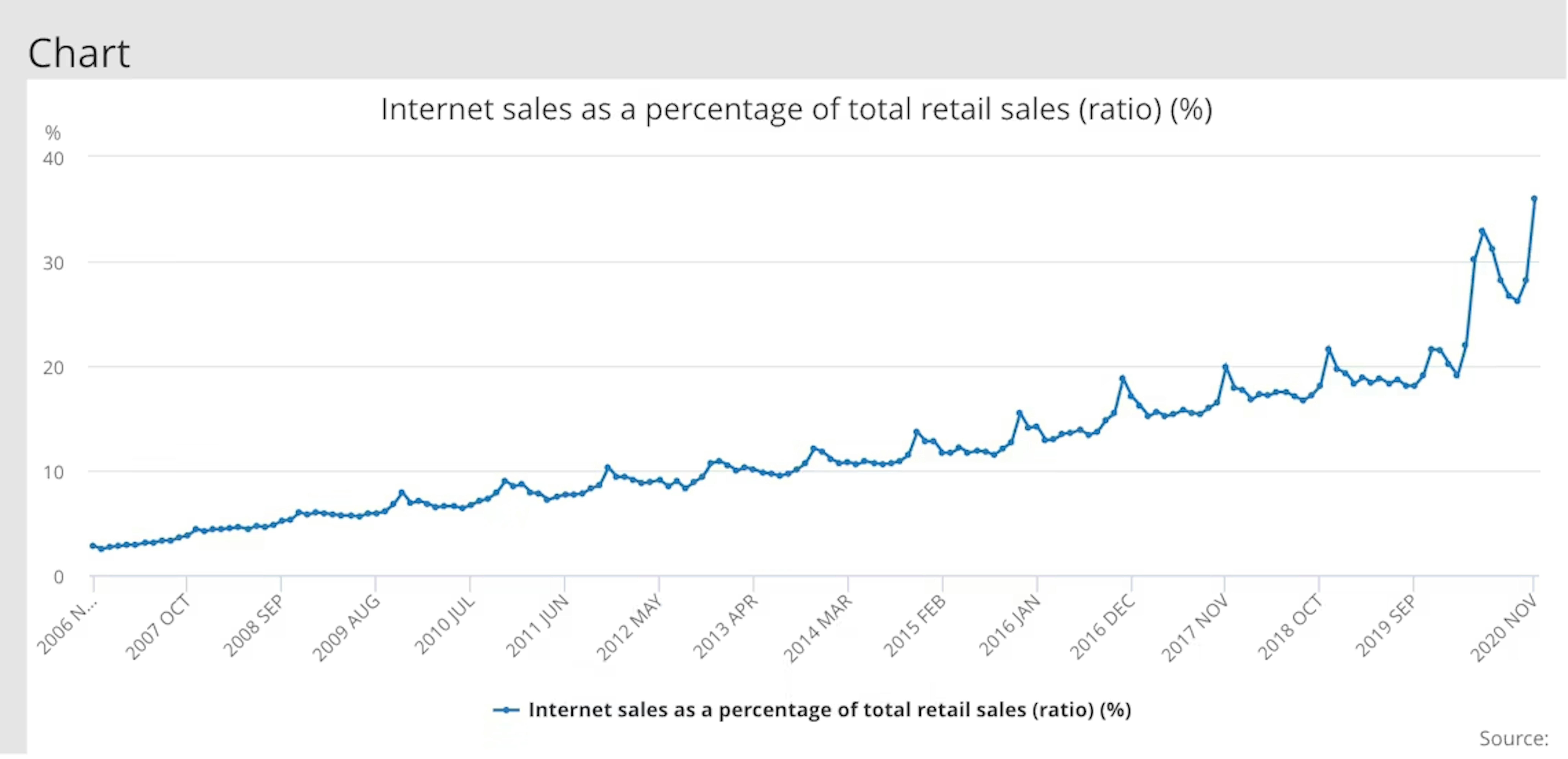
2 minute read
03.07.2024

Written by
With a passion for strategy, planning and behavioural insight, Chris has been building brands and activating them across multiple journeys for over 20 years. He thrives on collaboration with ambitious people and brands that believe in the power of a big idea.

I read an interesting headline last week that I haven't been able to stop thinking about: “Primark refuses to go online”, with the article detailing how they have no plans to develop an ecommerce offering.
It seems that the brand is sticking to its guns in terms of its business model, with a firm commitment to bricks and mortar retail and low cost price points. The pressures of fast fashion are clear - putting the infrastructure in place to support ecommerce would mean they would have to increase prices. And that’s at odds with their primary directive…
That’s a bold statement from a brand that has seen 305 of its 389 stores close and a loss in terms of opportunity costings of around £1 billion…
Primark has seen a 30% fall in sales over the last four months alone. Compare that to a 40% increase in sales for online fast fashion retailers such as ASOS and Boohoo. Eye watering stuff.
So is it the right call for the brand to shun ecommerce? I’m sure the team at Primark would argue that it would be short termism to react to a temporary issue that should resolve itself with the onset of a vaccine - especially given the scale of investment, commitment and business transformation required to go digital.
But the reality is that it’s short termism that has caused the problem in the first place, and it’s a problem that has been endemic on the global highstreet. And it’s a huge contributing factor to the downfall of some of our most treasured brands.
The attitude of ‘if it's not broke don’t fix it’ has caused some brands to sleepwalk into trouble. The warning signs were there pre-covid - a focus on physical footfall meant many underestimated the significance of changing digital behaviours in their markets and the impact they would have on the sustainability of their business models.
This isn’t anything new folks, the percentage of retail sales from ecommerce has been obviously growing for decades. As the most advanced ecommerce market in Europe, the UK has seen an increase from 2.5% in 2006 to 22% pre-pandemic. And growing another whopping 14% throughout 2020 to a total of 36% according to the Office for National Statistics.

And they are just generic market figures… when you look at Gen Z - the biggest consumers of fast fashion - the figures are impressive. According to Accenture 40% of Gen Z buy more than half of their clothing online.
And how they are engaging is changing too, with these audiences demanding more immersive ecommerce experiences. Two thirds of Gen Z have an interest in purchasing directly from social media. Off site sales have become important as part of a more connected multi channel ecommerce experience. At Nzime, we’ve seen this across the board with our retail comms and social strategies.
So behaviours are changing digitally and markets are playing catch up. Yet some brands fail to react to the change until it’s already knocking at the door. And by that point it’s going to be hard to recover.
This has been highlighted in the pandemic. Take the fall of the Arcadia Group for example, one of the largest brands on the highstreet.
Former head of the Topshop brand, Jane Shepherdson traces the downfall of the group back to its failure to embrace digital. She claims that the businesses focus on footfall meant it fell far behind these market changes, and was outpaced as a result by online retailers long before the onset of covid.
And it’s important to acknowledge that the struggles we’ve seen on the highstreet during the pandemic aren’t just a flash in the pan - and they aren’t all going away after the vaccine.
Lockdown has purely served to expedite change - Philip Green has said it himself that it has brought forward changes in online buying behaviour by five years.
It’s been the same story in the corporate world… With the ‘if it ain’t broke don’t fix it’ approach meaning many companies were left scrambling to adapt when the need for working from home hit.
Once again we see a change in behaviour - in this case the rise of remote working - not being addressed until it was knocking at the door…
I would say that the moral of this story is that digital is important - but it’s far more than that.
Digital, by its very nature, is ever changing. And there’s just as much revolution as evolution - it should keep you on your toes.
So the real moral of the story is to listen to your market. See change and act before it becomes too much of a threat to your business model to do so.
It’s a large part of what we do at Nzime - helping clients to look out into their market and adapt to the opportunities it presents. We’ve built entire Discovery processes around it.
And the need to engage with Gen Z in a post-pandemic market means that this is more important now than ever for brands to stay relevant!